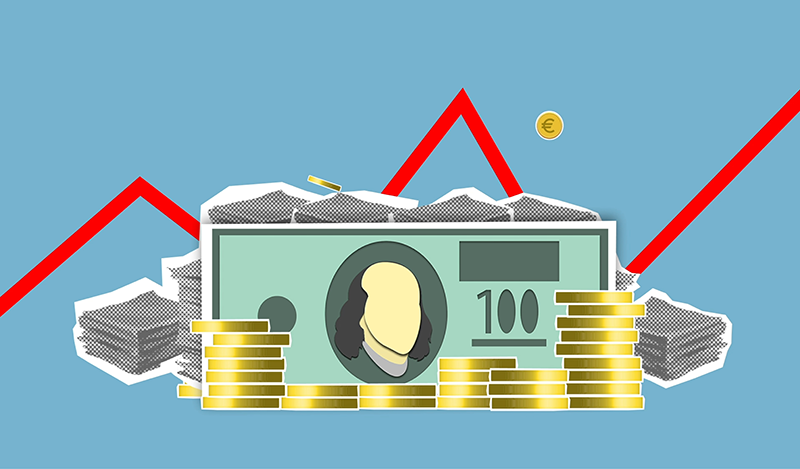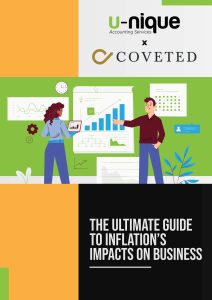Inflation and Your Budget Forecast

In an ideal world, your revenues would automatically adjust themselves to stay in line with—or ahead of—inflation. Unfortunately, that’s not always the case. During periods of moderate to high inflation, it often takes revenue longer to catch up than it takes expenses to increase.
It’s important to prepare your business for rising inflation, if you don’t, it can significantly impact your bottom line. One of the most proactive measures you can take is making adjustments to your budget.
Preparing Your Budget for Inflation
Preparing for inflation can be a lot like preparing for a budget cut. When costs rise and revenue remains steady, this results in the same loss of profit that would come from a dip in revenue. By lowering expenses going into a period of higher-than-normal inflation, you can give your revenues a chance to catch up. Here’s how:

Cut Expenses Where Possible
Inflation can majorly erode your purchasing power. You can start reducing your expenses immediately with the most painless changes like:
- Reviewing your marketing spend and cutting areas with low returns.
- Reviewing your software subscriptions and removing unnecessary ones. Conserving energy by shutting off “energy vampires” like small appliances that aren’t being used.
- Cutting back on extra team activities or events
These can seem like small changes, but when used together, they can add up to a buffer for rapidly rising expenses.

Review Your Vendor Contracts
With the increase in inflation combined with supply chain disruptions and labor market shortages and changes, contracts that were executed a year ago, or earlier, may not accurately account for the rapid rise in prices.
Consider negotiating these contracts to reflect the impact of inflation or even change vendors if doing so can lower your expenses or reduce turnaround time.
If Possible, Buy in Bulk
These supply chain issues can also mean that buying in bulk makes more sense. Larger purchases, especially of nonperishable goods and equipment, can also generally provide a cheaper price per item; as long as you’re accurately projecting your need, bulk buying can save you money.
This move toward bulk purchasing can go to both general office needs and product inventory or supplies. Just as buying a 24-pack of paper towels or toilet tissue is far cheaper than buying by the roll, inventory and product supply can also offer an economy of scale when you purchase a bit extra.
Follow Your Budget Closely
Sticking to your business’s budget can sound like a no-brainer to many. However, closely following your adjusted budget is one of the best ways to combat inflation—and is often easier said than done. Consider your budget as more of a spending plan meant to guide you through the shifting economy and serve as a roadmap for your business over the next year, five years, 10 years, and beyond. Closely following your budget can keep your business headed in the right direction.
Once you’ve cut all the costs you can, there’s not much else you can do but closely follow your budget as you attempt to increase your revenue and expand your customer or client base.
Download Most Popular Guide:
The Ultimate Guide to Inflation

Need Help Building an Inflation Budget?
It’s not easy to cut your costs, adjust your budget, and prepare your business for unpredictable changes in the economy. From the uncertainty of a post-pandemic future to continuing supply chain disruptions, it’s important for your business to remain as flexible as possible.
Working with an accountant can help. At U-Nique Accounting, our accountants work with you to prepare your business budget for inflation and help you implement systems to keep your business successful no matter what the future holds. Visit our website to book your 15-minute call with an experienced member of our accounting team.



